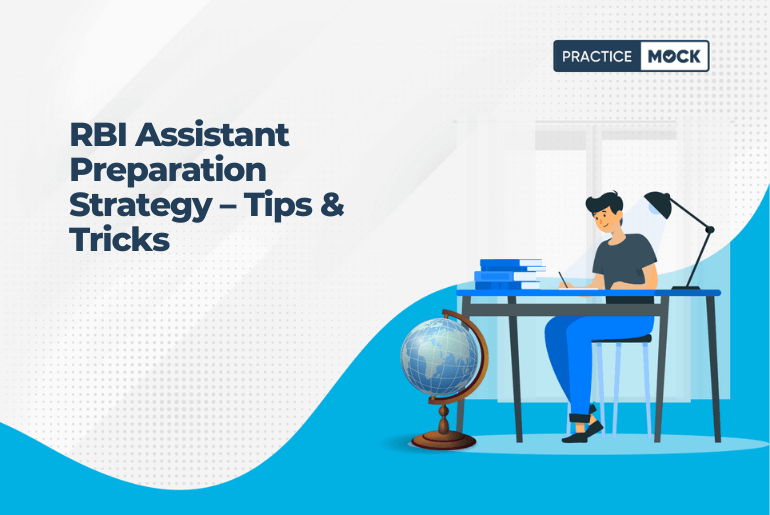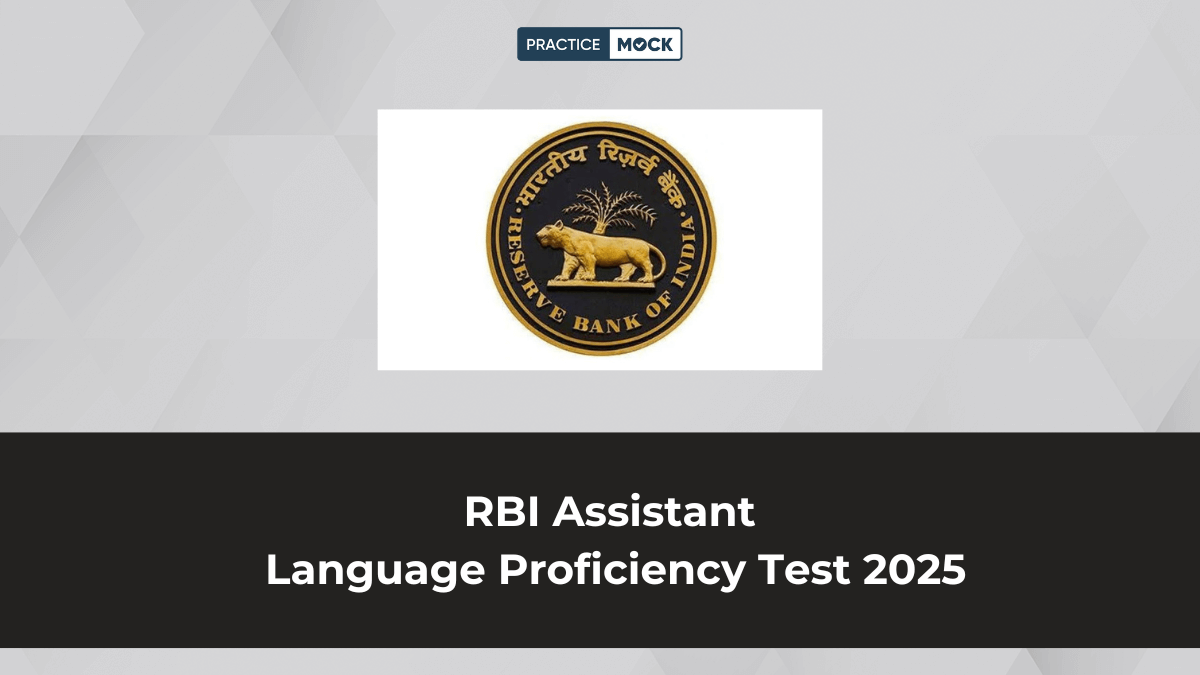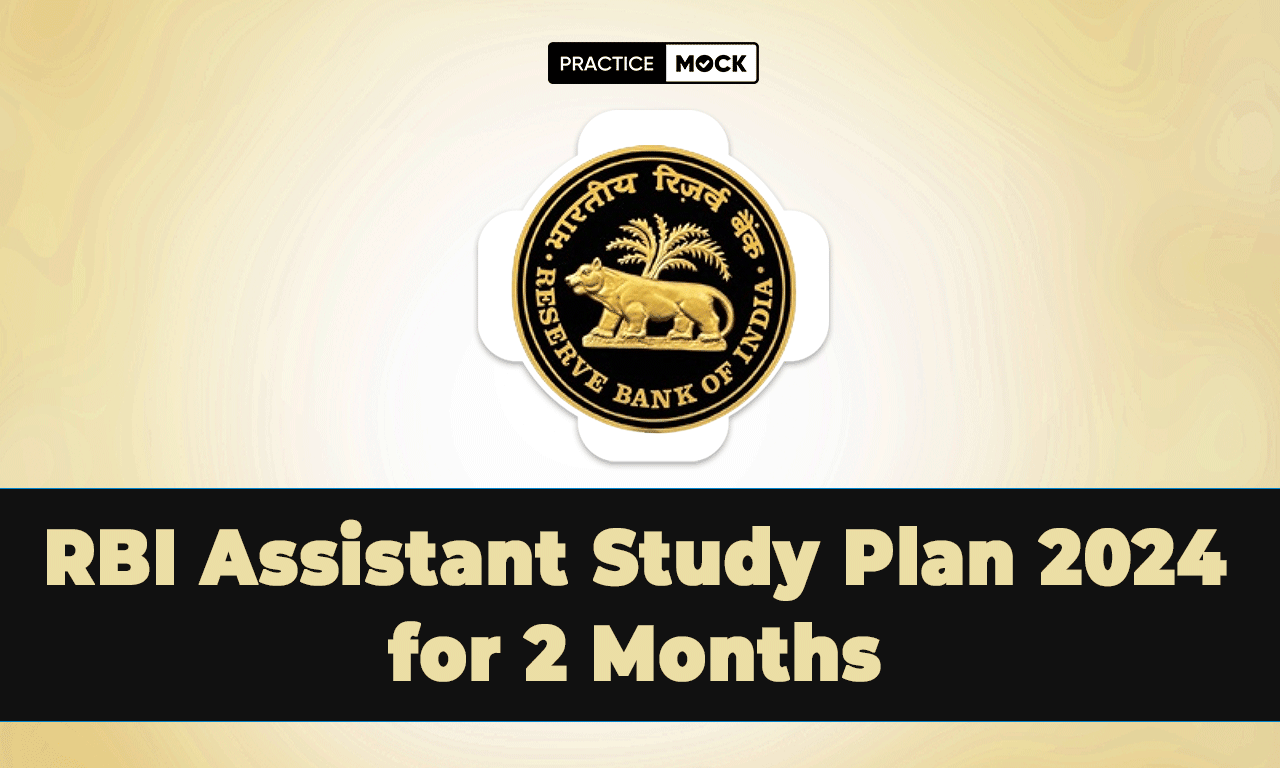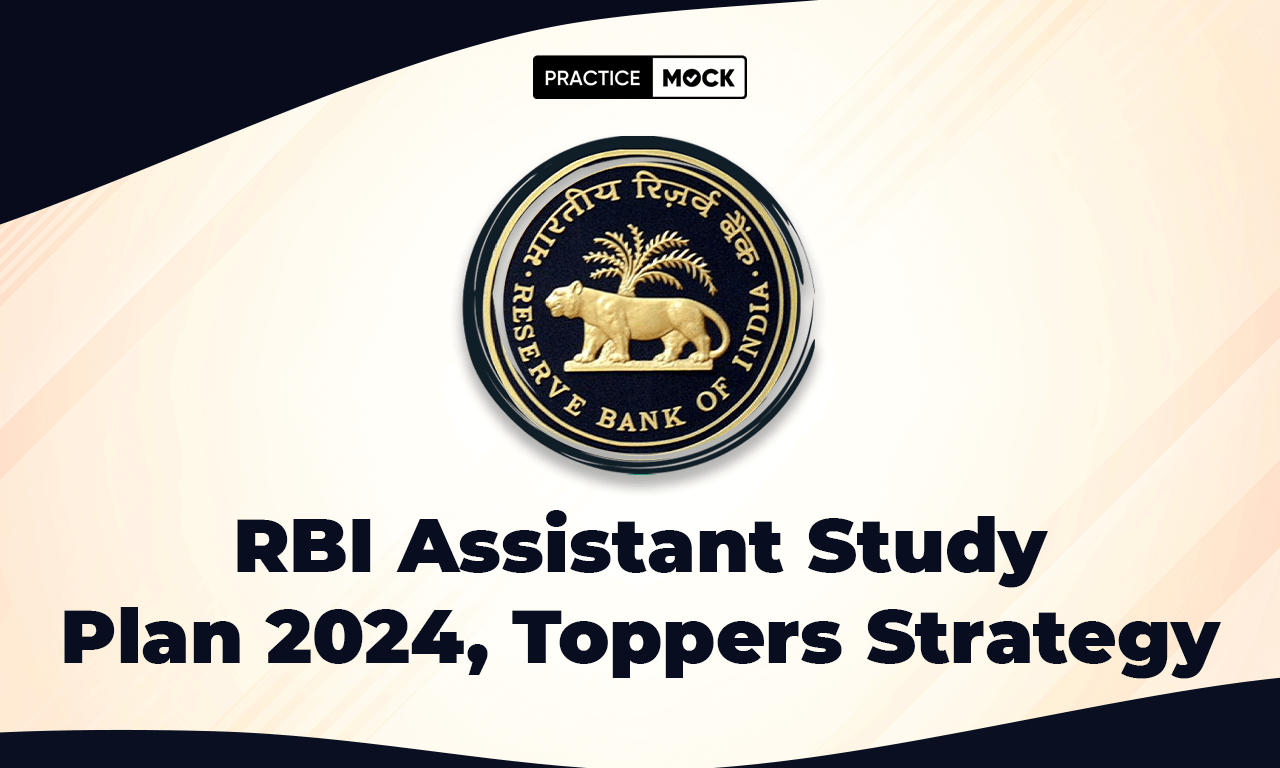

RBI Assistant Preparation Strategy: The Reserve Bank of India (RBI) issued a notification that RBI Assistant is out, aspirants are already deeply engrossed in their preparations, diligently working to secure their dream job with the RBI. This blog outlines the RBI Assistant Preparation Strategy to assist you in your daily study regimen. Without further ado, let’s delve into the details, including section-wise preparation plans for the Assistant exam.
RBI Assistant Preparation Strategy – Overview
Candidates gearing up for the RBI Assistant 2023 recruitment should be well-acquainted with the exam pattern and syllabus. Any modifications to the pattern or syllabus must be thoroughly understood to devise a suitable preparation strategy. The following sections provide subject-specific insights and tips to aid your preparations.
RBI Assistant Preparation Strategy – English
The English section is divided into four parts: Reading Comprehension, Grammar, Vocabulary, and Verbal Ability. Let’s delve into each of these components:
1. Reading Comprehension: This is the most time-consuming segment, requiring high accuracy for scoring well. It may contain a maximum of 10 questions, covering topics like Banking & Economy, Finance, Business, Monetary Policies, Financial Policies, Socio-Financial Issues, Types of Banks in the Economy, Globalization, and more.
2. Grammar: Error Spotting and Phrase Replacement are common in this section, with a combined maximum of 10 marks. Expect questions on Articles, Tenses, Prepositions, Parallelism, Subject-Verb Agreement, Degrees of Comparison, Sentence Correction, Adverbs, Phrasal Verbs, Pronouns, Non-Finite Verbs, and Common Errors.
3. Vocabulary: This section includes 10 questions on Phrase Replacement, Fill in the Blanks, Fillers, and 5 questions based on Para Jumbles. These questions are typically quick to solve and contextually based.
4. Cloze Test: Depending on the Reading Comprehension passage, you can expect 5-10 questions. Pay attention to the prepositions provided in the options before/after the blank, as they often have similar meanings.
Get RBI Assistant Free Mock Test & Analyze Your Performance
RBI Assistant Preparation Strategy – Reasoning Ability
The Reasoning Ability section encompasses various topics:
1. Arrangements and Patterns: Expect 5 questions on Random Sequence of Alphabets, Number Arrangements, and more. These are less time-consuming and moderately challenging.
2. Mathematical Inequalities: There will be 5 questions based on statement-based Inequalities, which are straightforward if you follow the steps correctly.
3. Syllogisms: This section includes 5 questions on Statements and Conclusions. Clear logic makes these questions quick to answer.
4. Coding & Decoding: You may encounter 0-5 questions based on coding-decoding, involving analogy, fictitious language, or coding by letters of a word. Practice is essential for swift and accurate solutions.
5. Seating Arrangements: Linear or circular seating arrangements account for 5 questions. Be prepared for single-row, double-row, unidirectional, or bidirectional variations.
6. Puzzles: Puzzles-based scheduling or building problems can contribute 0-5 questions to the test.
7. Miscellaneous: Depending on the paper’s composition, anticipate 5-10 questions from topics like Direction & Distances, Blood Relations, Order & Ranking, Classification, Double Line Up, and Data Sufficiency.
Get RBI Assistant Free Mock Test & Analyze Your Performance
RBI Assistant Preparation Strategy – Numerical Ability
The Numerical Ability section involves several subtopics:
1. Simplification/Approximation: Expect 10 questions covering BODMAS Rule, Approximation, Decimals, Fractions, Surds & Indices, and Percentages. These questions are generally straightforward and quick to solve with practice.
2. Data Interpretation: This segment is moderately time-consuming and challenging, featuring 5-10 questions based on various graphical data representations.
3. Number Series: 5 questions revolve around completing Number Series and identifying issues related to Missing or Wrong Terms. Proficiency in this area comes with practice.
4. Quadratic Equations: You may encounter 0-5 questions, where you must solve polynomial equations to find the values of unknown variables.
5. Miscellaneous: This section encompasses 15 questions, covering Averages, Interest, Mensuration, Percentages, Ratio & Proportion, Algebra, Profit & Loss, Time, Speed, Distance, Probability, Permutations & Combinations, among other topics.
RBI Assistant Preparation Strategy – General Awareness
The General Awareness section is exclusive to the RBI Mains exam and not part of the Preliminary stage. Since this section is low-scoring, candidates should dedicate at least a year to prepare notes on GK and Current Affairs. Key focus areas include:
1. Current Affairs: Stay updated by reading Daily Current Affairs for at least a year or six months leading up to the exam.
2. Major Topics: Questions may pertain to International Summits/Conferences, Governmental Schemes and Initiatives, Sports Tournaments, Books and Authors, International Organizations, Monetary and Fiscal Policies, Banking and Financial Terms.
Expert Tip: Enhance your General Awareness knowledge by studying newspapers, current affairs books, and periodicals related to the banking and finance sector, along with trending news related to the RBI.
Get RBI Assistant Free Mock Test & Analyze Your Performance
RBI Assistant Preparation Strategy – Computer Knowledge
The Computer Knowledge section in the Mains exam doesn’t require advanced computer expertise. You can excel in this 40-mark section with basic subject knowledge and the following strategy:
1. Key Topics: This section covers computer fundamentals, computer organization, computer generations, input and output devices, shortcuts, basic knowledge, memory orientation, internet, LAN, WAN, modem, computer abbreviations, and modern technology.
2. Simplicity is Key: Given the concise syllabus, candidates with basic high school computer knowledge can comfortably navigate this section. Questions primarily focus on clerical tasks and computer operations.
Advantage: As this section demands less time, it allows you to allocate more time to Reasoning and Aptitude sections, enhancing your overall performance.
Recent Posts
APCOB Syllabus 2025, Check Exam Pattern for Staff Assistant and Assistant Manager Posts
Know the APCOB syllabus and exam pattern 2025 for the Staff Assistant and Assistant Manager…
PNB SO Exam Analysis 2025, 5th May, Check Good Attempts and Expected Cut off
Get detailed PNB SO Exam 2025 analysis for 5th May. Know section-wise good attempts, difficulty…
RRB NTPC Preparation Strategy, How to Crack Railway Exam in First Attempt
Get Success with this RRB NTPC Preparation Strategy 2024. Follow the topper tips & crack…
IBPS PO 2025 Notification in August, Prelims & Mains Exam Dates Out
The IBPS PO Notification 2025 will be released soon on their official website. Candidates can…
RBI Priority Sector Lending Guidelines 2025, Check PSL Revised Rules
Get exam-ready with key updates on RBI’s 2025 PSL guidelines—clear changes in credit flow, bank…
Master Quadratic Equations for the RRB Clerk 2025 Exam, Download Free PDF
In this article, we have given some tips and tricks to master quadratic equations for…


